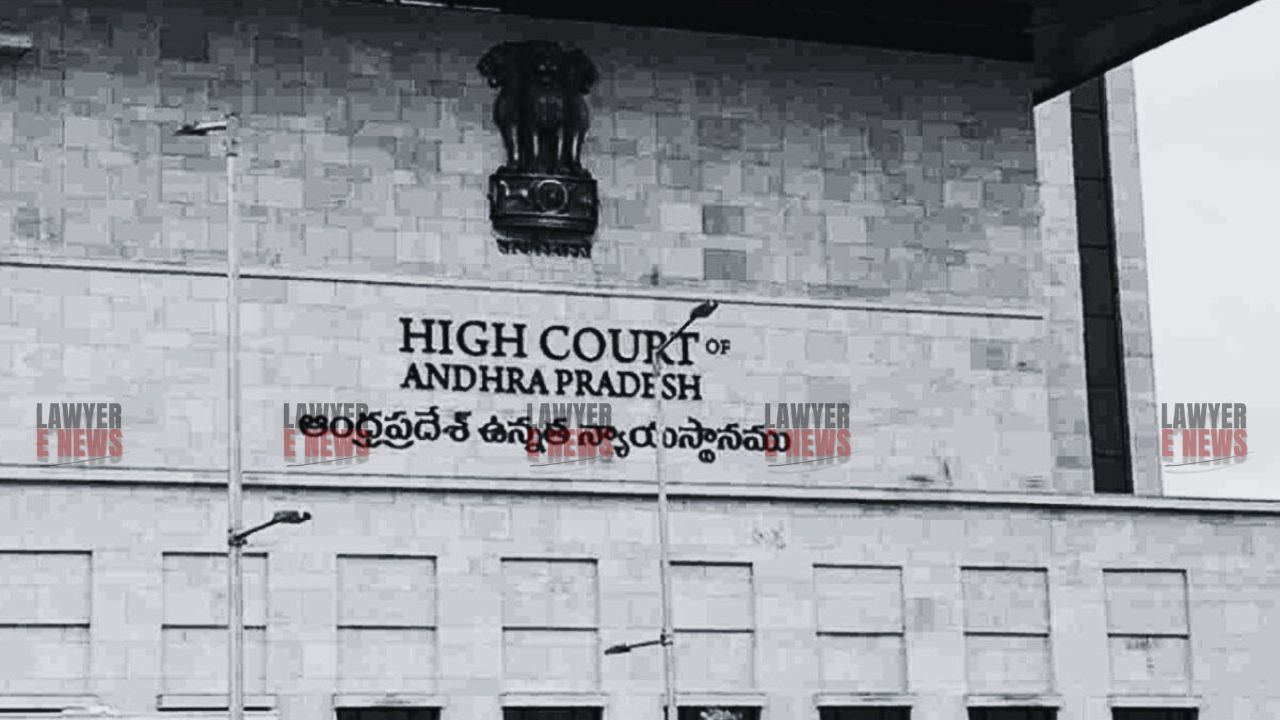-
by Admin
15 February 2026 2:16 AM



The High Court of Andhra Pradesh, in a judgment delivered by Justice B. Syamsunder, has set aside an order of remand issued by the Principal District Court of Srikakulam in a protracted eviction suit. The High Court ruled that the appellate court failed to follow the correct legal procedures under Order 41, Rule 28 of the Civil Procedure Code (CPC), and instead of remanding the case for a fresh trial, should have considered the additional evidence directly. The case, which dates back to 1995, involves a dispute over possession and recovery of rent arrears concerning the plaint ‘A’ schedule property.
The plaintiffs had originally filed a suit (OS No.227 of 1995) seeking the eviction of defendants from the disputed property and the recovery of unpaid rent. The trial court ruled in favor of the plaintiffs, directing the eviction of the defendants and the payment of arrears with interest. However, the defendants appealed the judgment in AS No.71 of 2000 before the Principal District Judge, Srikakulam, and sought to submit additional evidence under Order 41, Rule 27 of the CPC. The appellate court dismissed their petition but was directed by the High Court to admit the evidence conditionally. Following this, the defendants requested a recall of PW.1 for cross-examination. The appellate court subsequently remanded the matter back to the trial court, triggering the plaintiffs’ appeal to the High Court.
The primary issue before the High Court was whether the appellate court’s decision to remand the case for fresh disposal was legally sustainable. Justice Syamsunder observed that the appellate court had ample evidence and procedural mechanisms available to resolve the case without remanding it to the trial court, which would have unnecessarily prolonged the proceedings. The court underscored the importance of following the provisions of Order 41, Rule 28 of CPC when dealing with additional evidence, emphasizing that it allows the appellate court to either take the evidence itself or direct the trial court to do so, but does not mandate a full remand for re-trial.
Justice Syamsunder noted that the appellate court failed to assign valid reasons for its remand order and ignored the proper procedure under Order 41, Rule 28 of CPC. He quoted: “When necessary evidence is available and necessary issues are already framed by the trial court, the appellate court shall not remand the matter…this certainly would cause prejudice to the party who succeeded before the trial court.”
The court further stated that remanding the entire suit for fresh disposal was not justified, especially when the appellate court could have resolved the matter by receiving the additional evidence and framing necessary points for determination. The failure to follow this procedure constituted a significant legal error, prejudicing the plaintiffs, who were already successful in obtaining a decree for eviction and rent recovery from the trial court.
In his ruling, Justice Syamsunder remarked, “The judgment and decree passed by the First Appellate Court remanding the original suit…without following the procedure laid down under Order 41, Rule 28 of CPC are not sustainable either in law or on facts.” He further highlighted the unnecessary delay caused by the remand, noting, “Sufficient material is available before the First Appellate Court to decide the appeal by following the procedure laid down under Order 41, Rule 31 of CPC.”
The High Court’s judgment resolves a long-standing litigation by setting aside the appellate court’s remand order and directing the Principal District Judge of Srikakulam to take the necessary additional evidence and dispose of the appeal within three months. This decision reinforces the principles of judicial efficiency and ensures that procedural lapses do not unduly delay justice in civil suits, particularly those involving eviction and property recovery. Both parties are ordered to appear before the district court on September 17, 2024, to proceed with the case.
Date of Decision: August 28, 2024
Andhavarapu Govinda Rajulu & Others vs. Nabeen Kumar Sahu & Others
